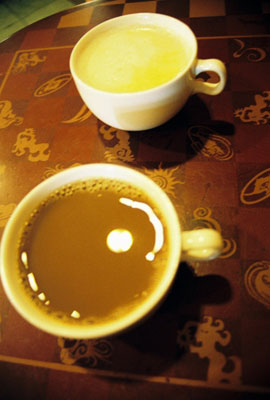All Nonfiction
- Bullying
- Books
- Academic
- Author Interviews
- Celebrity interviews
- College Articles
- College Essays
- Educator of the Year
- Heroes
- Interviews
- Memoir
- Personal Experience
- Sports
- Travel & Culture
All Opinions
- Bullying
- Current Events / Politics
- Discrimination
- Drugs / Alcohol / Smoking
- Entertainment / Celebrities
- Environment
- Love / Relationships
- Movies / Music / TV
- Pop Culture / Trends
- School / College
- Social Issues / Civics
- Spirituality / Religion
- Sports / Hobbies
All Hot Topics
- Bullying
- Community Service
- Environment
- Health
- Letters to the Editor
- Pride & Prejudice
- What Matters
- Back
Summer Guide
- Program Links
- Program Reviews
- Back
College Guide
- College Links
- College Reviews
- College Essays
- College Articles
- Back
Internet: Friend of Foe of Democracy?
The internet, as a form of mass communication, can support and expand democracy. Democracy demands a government in which supreme power is vested in the people and exercised by them indirectly through a system of representation- a government of, for, and by the people. The “Social Contract” by which we as a society live, is one in which every person has an equal voice and opportunity. The internet, as any form of mass communication, has the ability to provide people with the information needed for informed decisions and will be, in the long run, an extremely useful tool in the progression of democracy.
Mao Tse-tung expressed the idea that “political power comes out of the barrel of a gun.” It is not strict military power that leads to political power, however, but the ability to mobilize people on a continuing basis to speak up for an idea, that creates true political power. The internet aids in this mobilization of people. The ability of governments to suppress ideas and oppose change becomes limited as communication becomes increasingly decentralized.
Another key component in a vibrant democracy is the ability to know and understand the platforms of political candidates, so that the people can make informed decisions. In many ways, the internet mirrors the earlier impact of the television upon democracy, especially during the 1953 election where Eisenhower "took his case to the people." The internet allows the rapid spread of information. The transformation of politics by the internet is accelerating. Democrats and Republicans alike are sharply increasing their use of e-mail, interactive Web sites, and candidate and party blogs. The internet is far more efficient, and less costly, than the traditional tools of politics, notably door knocking. In a country as large as America, the internet allows candidates to get their platforms out universally, not simply to people attending their speeches. The internet allows the people, who are the cornerstone of democracy, to receive up to date reports about public events and issues in order to make informed decisions.
Another important part of democracy is the ability of the governed to communicate with their elected officials after the ballots have been counted. While some people criticize political online blogs and specialized websites, they are expressions of freedom of speech and are effective ways for people to communicate their ideas with the world. Political elites are constantly attempting to shape political discourse to their benefit. In this sense, the internet can be perceived as no different then past technologies such as the television. The qualitative difference is the decentralized nature of the internet allowing opposing views to spread globally. It allows for people to express their ideas directly, making their thoughts easily accessible to their elected officials. It allows any person with access to a computer to have a voice. They no longer need to have power or social status to have a say, which truly demonstrates democracy.
Some people describe history as a pendulum swinging from left to right. At one point in time, more conservative forces may be in the ascendancy, at other times more liberal forces may take the lead. I think, however, that this idea misses the true trend of history. It is not a pendulum, but a spiral staircase that history marches on. While we may oscillate between conservative and liberal views, we are not simply swinging back and forth; we are always moving human rights forward. The internet, as a tool of decentralized mass communication, extends the reach of democracy. It allows every person to have a voice.

Similar Articles
JOIN THE DISCUSSION
This article has 0 comments.
